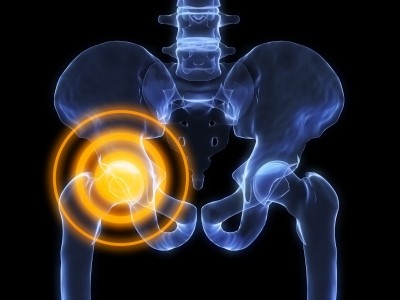Vitamin K good for young bones, too: study
implications on bone health, and higher levels could benefit
children with arthritis, suggests a new study.
An improved status of the vitamin was linked to improved bone health in both healthy children and well as sufferers of juvenile idiopathic arthritis, according to findings of the study published in the journal Clinical and Experimental Rheumatology. Juvenile idiopathic arthritis (JIA) is reportedly the most prevalent rheumatic disease in children, and affects one in every 250 children in the US, according to the Arthritis Foundation. In the children with JIA, a higher vitamin K status was associated with markedly higher bone parameters, according to researchers from the University Medical Centre Utrecht and the University of Maastricht. The new study correlated vitamin K status, measured as a ratio of undercarboxylated osteocalcin (ucOC) to carboxylated osteocalcin (cOC), to bone mineral content (BMC) and markers of bone metabolism. Osteocalcin is a vitamin K-dependent protein and is essential for the body to utilise calcium in bone tissue. Without adequate vitamin K, the osteocalcin remains inactive, and thus not effective. "These findings suggest that improvement in vitamin K status, and thus in the amount of active osteocalcin, might significantly improve bone health in children, even in those with arthritis," said study co-author Leon Schurgers, PhD from the University of Maastricht. Study details The researchers recruited 55 children with JIA and 54 healthy controls aged from six to 18, and determined vitamin K status, and measured bone health. They found no overall difference in the vitamin K status between the study groups. However, a high ratio of ucOC/cOC in the children with JIA was linked to low bone ultrasound parameters. This indicated that low vitamin K was associated with decreased bone health. "These results suggest that vitamin K may be one of multiple risk factors for low bone mass in children with JIA, in addition to other recognized determinants of bone mass," wrote the authors. "The question remains whether JIA patients would benefit from increased dietary vitamin K intake," they added. "This will need to be confirmed in a prospective intervention study in JIA patients, preferably in a selected group of patients with severe active disease who are at highest risk of developing reduced bone health," they concluded. Science grows for growing bones The research adds to a growing body of science linking the vitamin to improved boned health, the researchers reported that an improved vitamin K status was associated with improved bone mineral content and bone mass in the whole body amongst 307 healthy children with an average age of 11.2 (British Journal of Nutrition, doi:10.1017/S0007114508921760). Such research may have important implications for osteoporosis, characterized by low bone mass, which leads to an increase risk of fractures, especially the hips, spine and wrists. An estimated 75 million people suffer from osteoporosis in Europe, the USA and Japan. Women are four times more likely to develop osteoporosis than men. Potential reduction of osteoporosis has traditionally been a two-pronged approach by either attempting to boost bone density in high-risk post-menopausal women by improved diet or supplements, or by maximising the build up of bone during the highly important pubescent years. About 35 per cent of a mature adult's peak bone mass is built-up during puberty. Previously, the Maastricht-based researchers previously reported that daily supplements of vitamin K2 maintained hipbone strength in postmenopausal women, while placebo led to weakening (Osteoporosis International, doi: 10.1007/s00198-007-0337-9). The double-blind, placebo controlled study followed 325 healthy women with no osteoporosis for three years and also found that vitamin K2 supplements boosted the women's bone mineral content (BMC), compared to placebo. Source: Clinical and Experimental Rheumatology Volume 26, Issue 3, Pages 484-491 "Extremes in vitamin K status of bone are related to bone ultrasound properties in children with juvenile idiopathic arthritis" Authors: M.J.H. van Summeren, C. Vermeer, R.H.H. Engelbert, L.J. Schurgers, T. Takken, K. Fischer, W. Kuis













